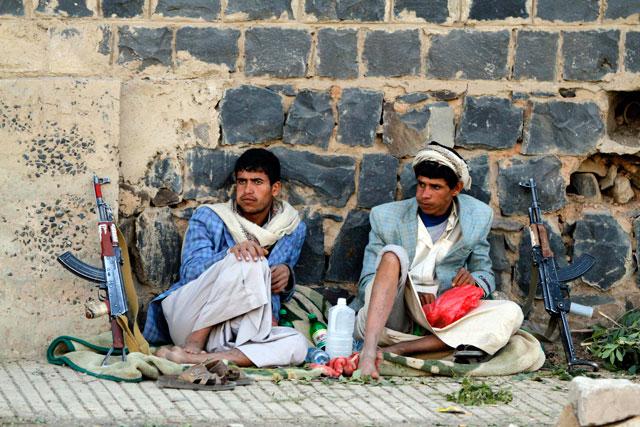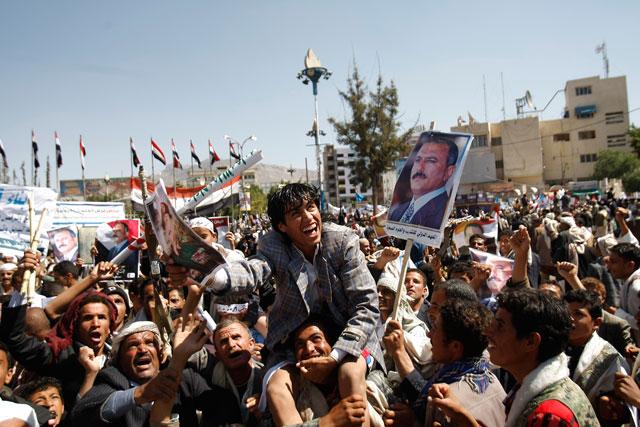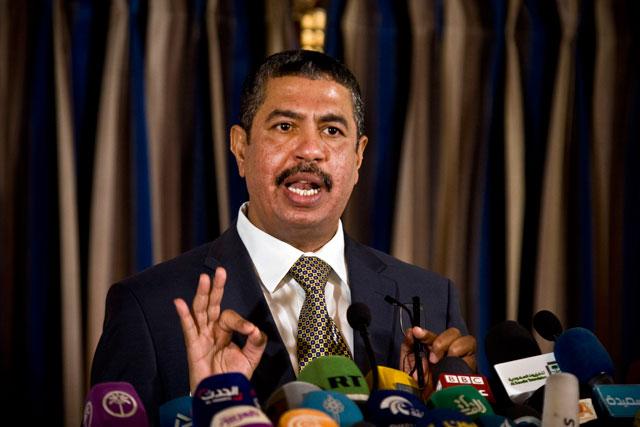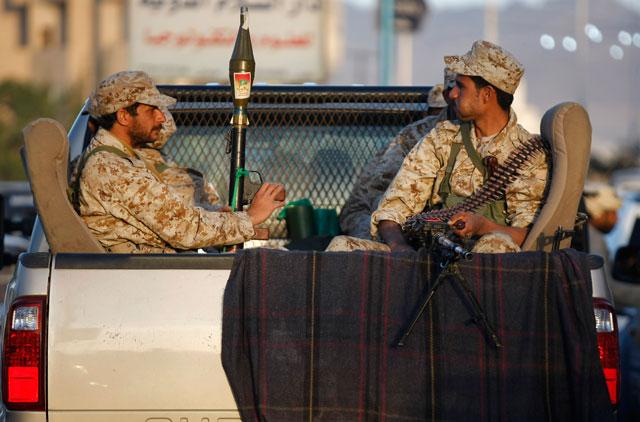You are here
All Yemen parties agree on technocrat Cabinet
By AP - Nov 02,2014 - Last updated at Nov 02,2014

SANAA — The UN special adviser on Yemen praised on Sunday the agreement of all Yemeni parties and political groups on the formation of an apolitical technocrat Cabinet that ended a deadlock of over two weeks.
Jamal Benomar, in a statement, said that Saturday night's compromise is an important step towards implementing the agreement of peace and national partnership and consolidating the country's stability.
In the last few weeks, Shiite rebels known as Houthis captured the capital and demanded the president appoint a new government because they complained the previous one was too close to their rival conservative Sunni Islamist party. A UN brokered deal was reached through which Khaled Bahah was nominated as prime minister and tasked with forming a new government. But the dispute over who will populate Bahah's Cabinet has, until now, ground the process to a halt at a critical time.
The Houthi rebels had given Bahah and President Abed Rabbo Mansour Hadi an ultimatum Friday, hinting of a takeover if they didn't succeed in forming a government. Former president Ali Abdullah Saleh, who has allied with the Houthis, and other groups had earlier insisted on the formation of a Cabinet that included representatives of all political factions. But amid rising international pressure and the UN involvement, the different groups reversed course on Saturday and agreed to support a Cabinet of apolitical technocrats.
A joint statement said the different Yemeni political factions were, "committed completely to not question the decisions of the president and prime minister, and also committed to provide the new government with the necessary support".
Underlining the tension that still grips Yemen, gunmen on a motorcycle shot and killed a prominent liberal politician in Sanaa who was a member of the committee that sought a political compromise on the new government and other transition issues, security officials said.
Mohammed Abdel-Malik Mutawakel, a Sanaa University political science professor and formerly a government minister in the 1970s, was a pro-democracy advocate who was viewed by many as close to the Houthis. A liberal, Mutawakel had said Yemen can only be governed from now on democratically. It is not clear who is behind his killing.
Bahah is set to become Yemen's first new prime minister in two years, after Mohammed Salem Bassindwa was forced out in September. Bassindwa was criticised for the country's deteriorating security situation and as too close to the Islamist Islah party, which is one of Yemen's traditional power bases.
Meanwhile, security officials said militants of Yemen's Al Qaeda branch attacked the security headquarters in the small town of Jabal Ras in Hudayda province on Saturday and killed 19 army soldiers and security guards.
The officials, speaking on condition of anonymity because they were not authorised to brief the media, said three Al Qaeda militants and two civilian passersby were killed during the exchange of fire.
In Cairo, Arab League permanent representatives urged all Yemeni factions to abide by the agreement and to speed up the process of forming a new government.
In a statement issued after Sunday's meeting, the Arab League stressed that "only Yemen's constitutional bodies are responsible for the country's security, unity and stability".
It called on the Shiite Houthi militias to stop their military activities, withdraw from the areas they control and return the weapons they seized.
Related Articles
Yemen's ruling party, led by former leader Ali Abdullah Saleh, and allied Shiite rebels rejected Saturday a newly formed government threatening a UN-brokered deal that established a truce after the rebels overran the capital.
Yemen's new Cabinet was sworn in on Sunday despite calls by former autocratic president Ali Abdullah Saleh and Shiite militias allied to him for it to be boycotted.
Yemen's main political factions, including the Houthi rebels, signed an agreement on Saturday mandating the president and prime minister to form a new government in an effort to defuse political tensions that have crippled the impoverished state.














